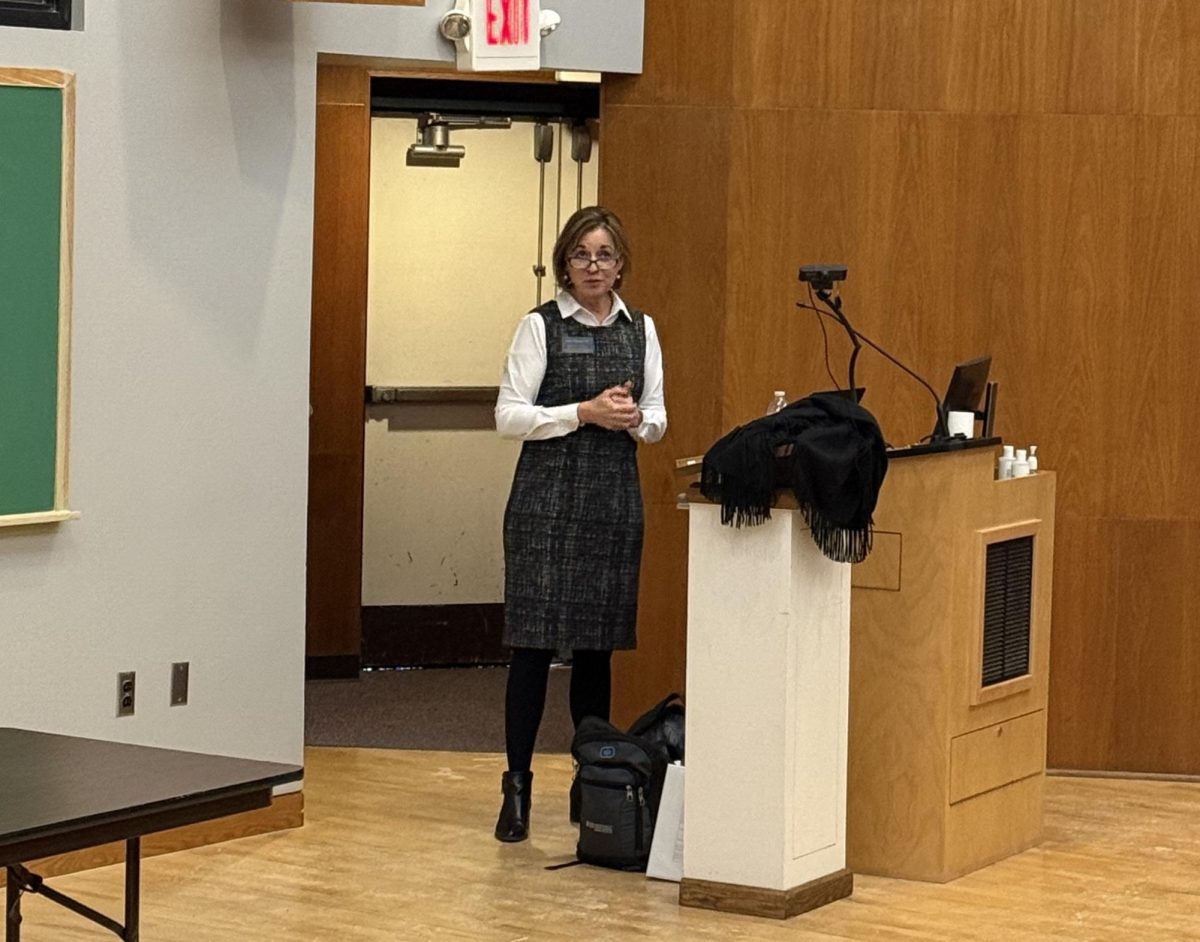By ALEX GORDON
This week, the Office of Spiritual and Religious Life hired a consultant, Peter Laurence of Wellesley College, to evaluate the spiritual and religious atmosphere of the campus. Laurence’s evaluation is part of a larger self-study undertaken by the Office of Spiritual and Religious Life.
According to College Chaplain Rev. Jane Ellen Nickell, these self-studies are required of every department on campus.
“This seemed like a good time in the life of the Spiritual and Religious Life Office,” she said.
At Wellesley, Laurence works as the executive director of the Education as Transformation Project, an initiative seeking to examine the role of religious diversity and spirituality in educational institutions. He conducts similar visits at colleges around the country.
During his time at Allegheny Laurence had conversations with various members of the college community, including faculty members, administrators, and students. He will write a report of his findings for the SRL to use in further evaluating their current and desired role on campus.
“The goal is for the office of Spiritual and Religious Life is to do their job better, to serve the needs of the college better,” Laurence said. “My goal is to help them figure out how to do that.”
Nickell and her counterparts will incorporate Laurence’s findings into a comprehensive study of their office. One of the changes to arise from this self-study is an alteration in their title from “Religious Life” to “Spiritual and Religious Life”.
“We’ve recently changed to the Office of Spiritual and Religious Life to open it up to students who aren’t particularly religious and are searching for a more fluid ‘spirituality,’ while at the same time not backing away from our role in supporting those students who are religiously affiliated,” Nickell said.
Students such as Sam Elliot, ’11, welcome this change in title.
“While the Spiritual and Religious Life office has done a good job of meeting the needs of many religious orientations on campus, there are many students here at Allegheny that don’t associate themselves with a particular religion,” he said. “The name change is one example of the Office of Spiritual and Religious Life adjusting to suit students while not pushing religion in the faces of those that aren’t comfortable with it, or don’t want it.”
Elliot, who is the president of Hillel, was one of the many students who had the opportunity to discuss his religious experiences at Allegheny with Laurence. Samar Syed, ’12, was another such student. Syed, who is the president of the Islamic Awareness Society, spoke with Laurence about the Muslim community on campus.
One of the questions posed by Laurence was whether or not it would be desirable or effective for SRL to employ a Muslim spiritual leader. Syed did not have a definite answer.
“There aren’t many active Muslim students, so there’s not a huge demand for a representative in Religious Life, but at the same time if they want to draw a larger Muslim student group, they need to bring someone like that in,” she said.
Other issues on the forefront of the study include improving the interfaith community and preparing students for interacting with one another in a post-graduate society full of spiritual diversity.
Lucas Schwanke, ’13, who is a part of the leadership team for Allegheny Christian Outreach, is pleased with the ways in which Spiritual and Religious Life caters to the needs of students, but is eager to see the results of Laurence’s consultation.
“There’s always room for improvement and change,” Schwanke said. “That’s what makes a great system.”
The Office of Spiritual and Religious Life intends to release the final results of the self-study to the public during this academic year.





